The Best D2C Ecommerce Platforms
After extensive research, we’ve rounded up the leading D2C ecommerce platforms you should consider for your business:
1. Subbly
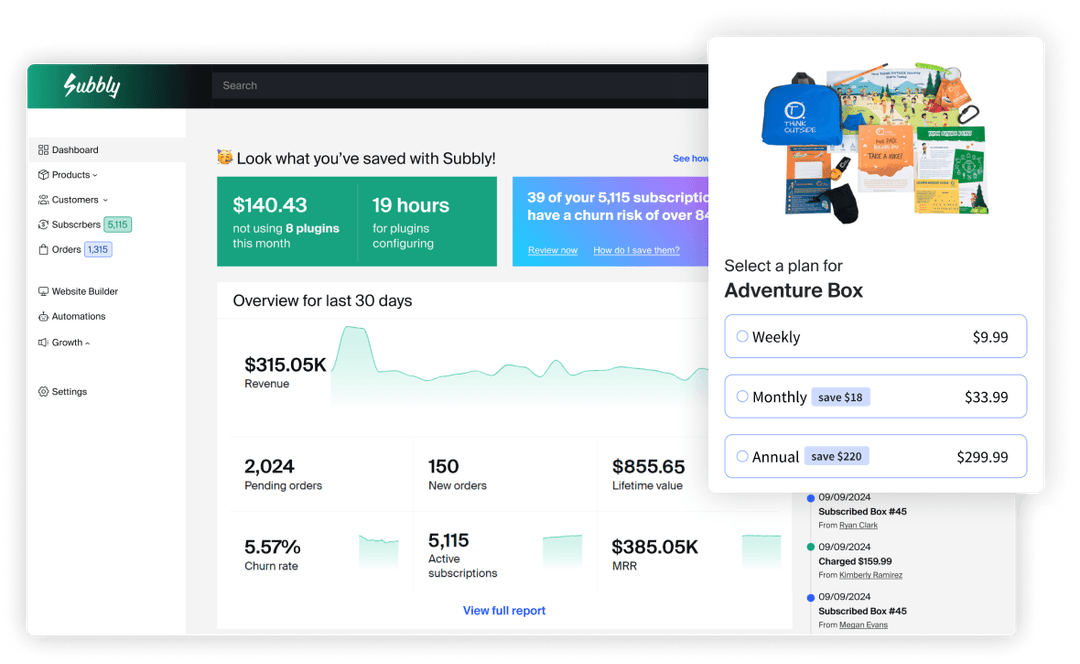
Subbly is hands-down the top choice for most businesses, especially if you’re looking for flexibility.
Built with a subscription-first mindset, Subbly empowers your business to thrive on recurring revenue.
Whether you’re launching a new subscription service or scaling an existing one, it provides everything you need to build lasting customer relationships and predictable income streams.
What makes Subbly even more appealing is its ability to get you online fast.
You can launch an ecommerce website in five minutes with one of Subbly’s proven templates, instantly saving you time and effort.
From there, it’s as simple as adding your branding, and you’re ready to go—often within the same day.
What truly sets Subbly apart as a top D2C ecommerce platform is its seamless blend of ease of use, scalability, and features designed to help your business evolve.
If you’re hoping to future-proof your business, then Subbly is a great way to sell your products and services directly to your customers.
Key features
- Accept payments from multiple gateways for easier checkout.
- Quickly build your site with a simple drag-and-drop editor.
- Present your site in different languages to reach more customers.
- Customize the shopping experience to improve customer satisfaction and loyalty.
- Manage both international and local taxes with built-in tools.
- Inventory management with professional features.
- Set up flexible shipping rules based on location or product details.
- Track important business metrics with built-in analytics.
- Gather custom data to create a personalized shopping experience for each customer.
- Give customers the option to customize their product bundles.
- Offer flexible billing options for both recurring and one-time purchases.
- Allow customers to set commitment terms, such as monthly or yearly subscriptions.
- Customers seeking tailor-made software can enjoy custom development and hands-on support via Subbly X.
Pricing: Starting at $14/month, as well as a 0.25% – 2% (depending on plan and volume) + $0.19 transaction fee (free trial available)
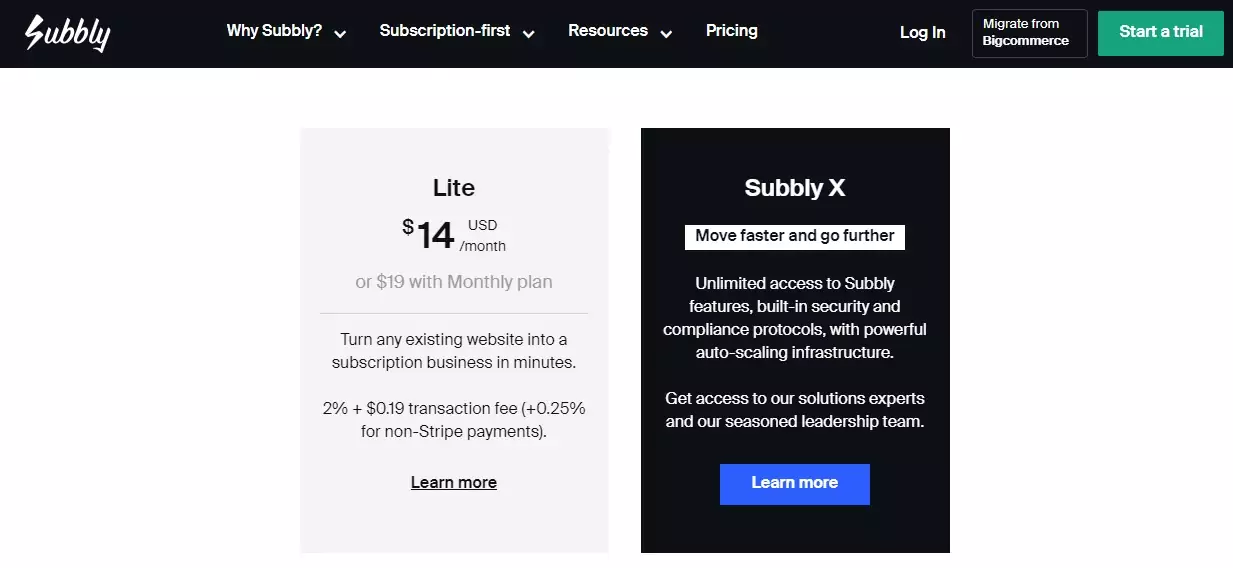
👀 See Subbly in action
We created several examples to help you understand how Subbly can be used to create an awesome D2C ecommerce website.
Check out this one for a hypothetical supplement brand, VL1. Not only does it look good, but customers can choose from several product and subscription options, which gives them flexibility.

Want to see a real-life example? BusterBox is a D2C subscription service that provides treats and toys for dogs.
They’ve been using Subbly for more than six years. We boosted their business by helping them create a more professional looking website.

2. Shopify
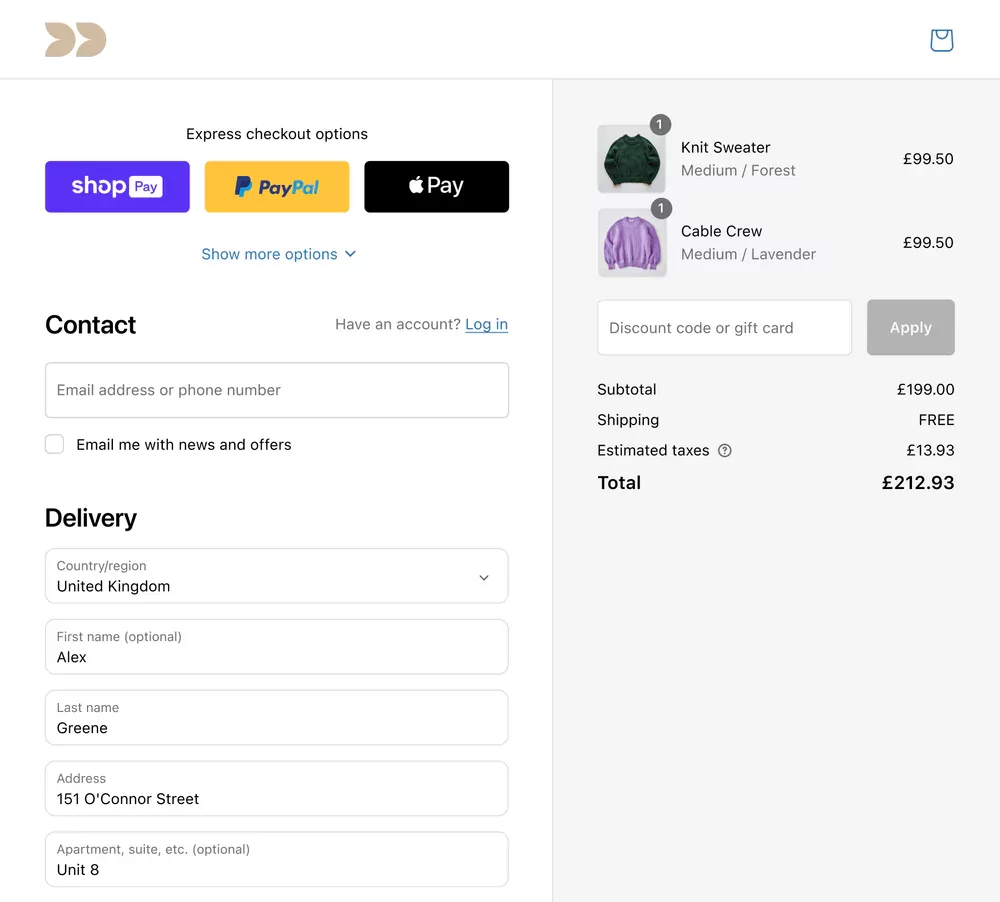
Shopify is the most well-known ecommerce platform, giving you immediate access to a wealth of support from its large community of users.
If you ever experience difficulties—for example, when setting up your site or configuring features—there are countless online tutorials, forums, and guides to help you out.
So how does Shopify work?
You start by signing up for an account and, once you’re in, you land on a dashboard that lets you set up your online store, customize your design, and add products.
While Shopify offers a solid foundation to get started, it only comes with basic ecommerce features.
If you, for example, want to offer subscriptions to your customers, you’ll need to add several plugins from Shopify’s app marketplace to make this a reality.
Keep in mind that each app comes with an additional cost, and since many of these apps are developed by third-party providers, they can sometimes create syncing issues.
With the right setup, though, Shopify can be a powerful tool for the D2C business model.
Key features
- Easily integrates major payment gateways.
- Choose from multiple themes to match your brand.
- Get access to free business tools, like a logo and slogan maker.
Pricing: Starting at $19/month + 2% transaction fees
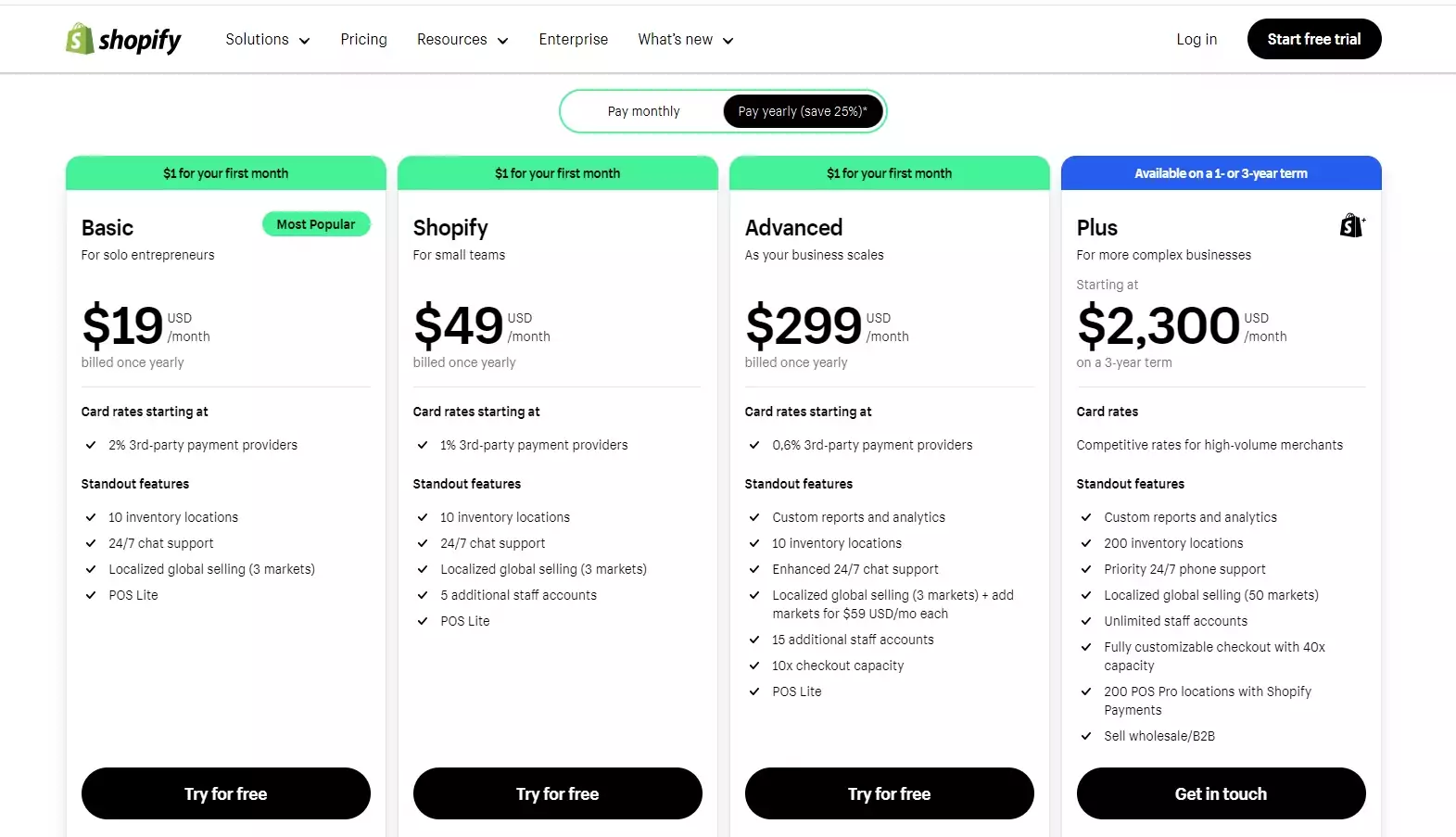
3. BigCommerce

Around 42,000 live online stores are powered by BigCommerce, which means that it’s one of the smaller ecommerce platforms.
Nonetheless, it has some big clients, including BMW and Ben & Jerry’s, which demonstrates its capacity to handle larger operations.
One of the platform’s strengths is its ability to integrate with existing WordPress sites.
If you already have a WordPress website, you can add BigCommerce’s ecommerce features without needing to rebuild your entire site.
This allows you to keep your existing content and structure while adding the ecommerce tools you need to grow and scale your business.
In addition, BigCommerce has a partnership with UpWork, which gives you direct access to freelancers with specialized BigCommerce experience.
This can be a huge help if you need assistance customizing your site or managing complex features.
However, similar to Shopify, this extra help comes at an additional cost—you’ll need to pay for these freelance services separately.
Unfortunately, you will also have to pay for extra apps, like PayWhirl, to get access to subscription functionality.
Overall, BigCommerce offers useful features and flexibility to entrepreneurs who want to expand their existing direct-to-consumer operations.
Key features
- Sell directly through social media platforms like Facebook and TikTok.
- Easily launch a sibling brand using the same back-end system.
- Accept digital wallets and offer “buy now, pay later” payment options.
Pricing: Starting at $29/month + 2.59% + 49¢ online payments
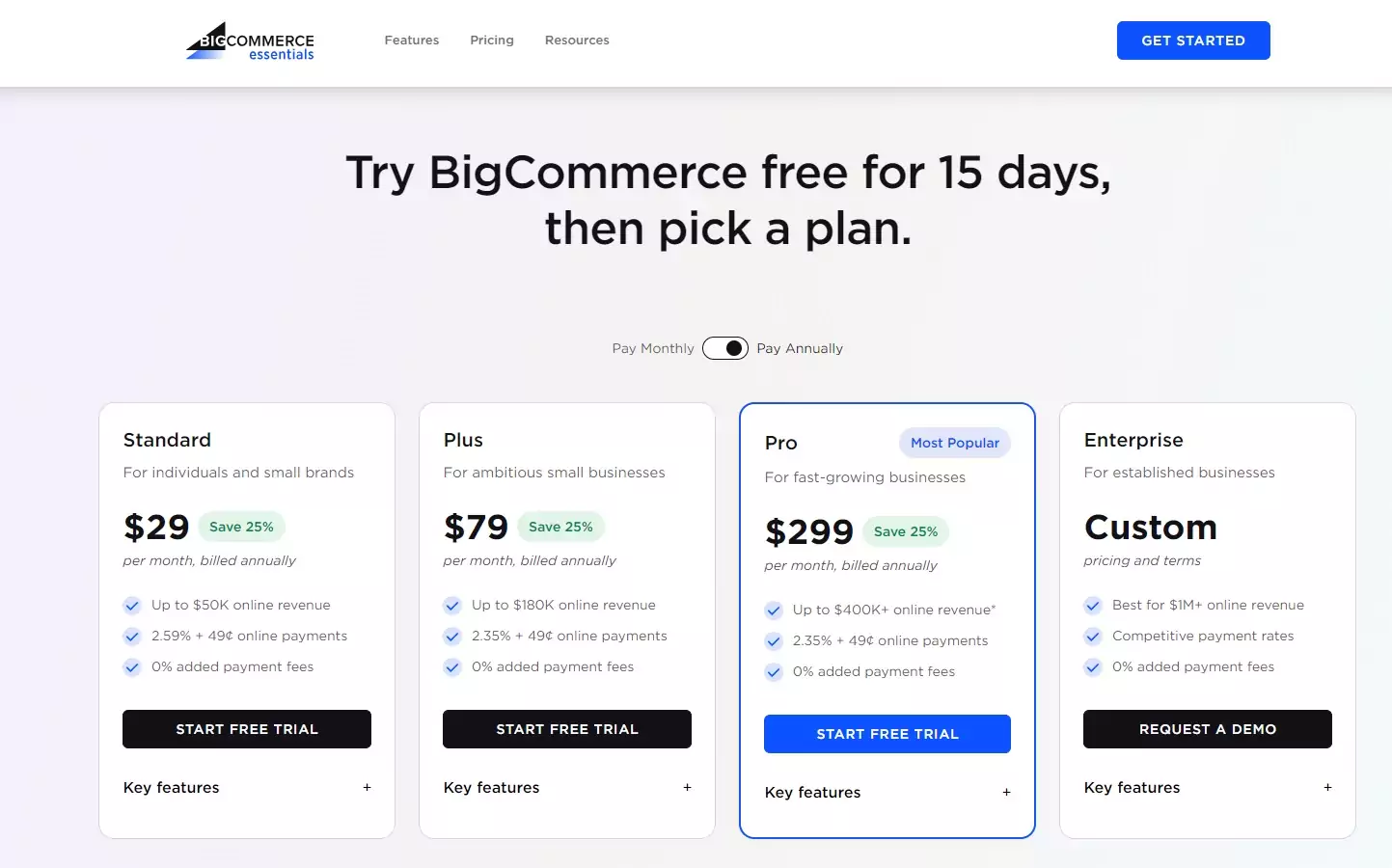
4. WooCommerce
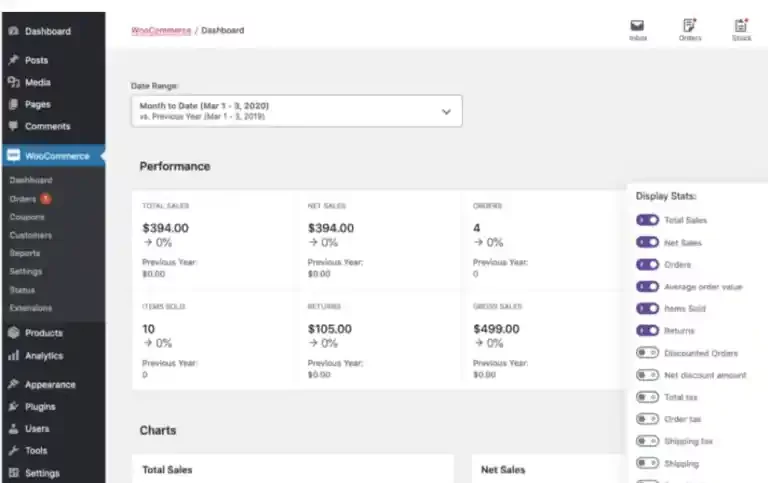
WooCommerce is the official ecommerce plugin for WordPress websites, allowing you to transform your existing site into a fully functional online store.
With WooCommerce, you can easily manage products, process payments, and handle shipping—all within the familiar WordPress interface.
The combination of WordPress and WooCommerce provides you with the basic functionality needed to run your business online.
However, you may want to add WooCommerce extensions for extra features like shipment tracking, or optional product add-ons such as gift wrapping.
Being open-source, WooCommerce allows you to modify the code to add specific features, making it a good choice if you have an in-house developer.
While WooCommerce itself is free to install, you’ll need to pay for premium themes, plugins, extensions, and—of course—your WordPress website.
Keep in mind that WordPress was originally built as a blogging platform, so it wasn’t designed with ecommerce in mind.
This means that it may be harder to scale your store’s functionality and handle complex features like subscription payment processing or large product catalogs.
If you’re hesitant to migrate your WordPress site to a new platform, WooCommerce could be an excellent choice to maintain your current setup.
Key features
- Set up shipping methods, including flat rate, free shipping, and local pickup.
- Provides basic sales reports, including revenue, order count, and customer data.
- Offers features that help optimize your store for search engines.
Pricing: Free + WordPress website ($100 – $3,000) + extensions (see examples below)
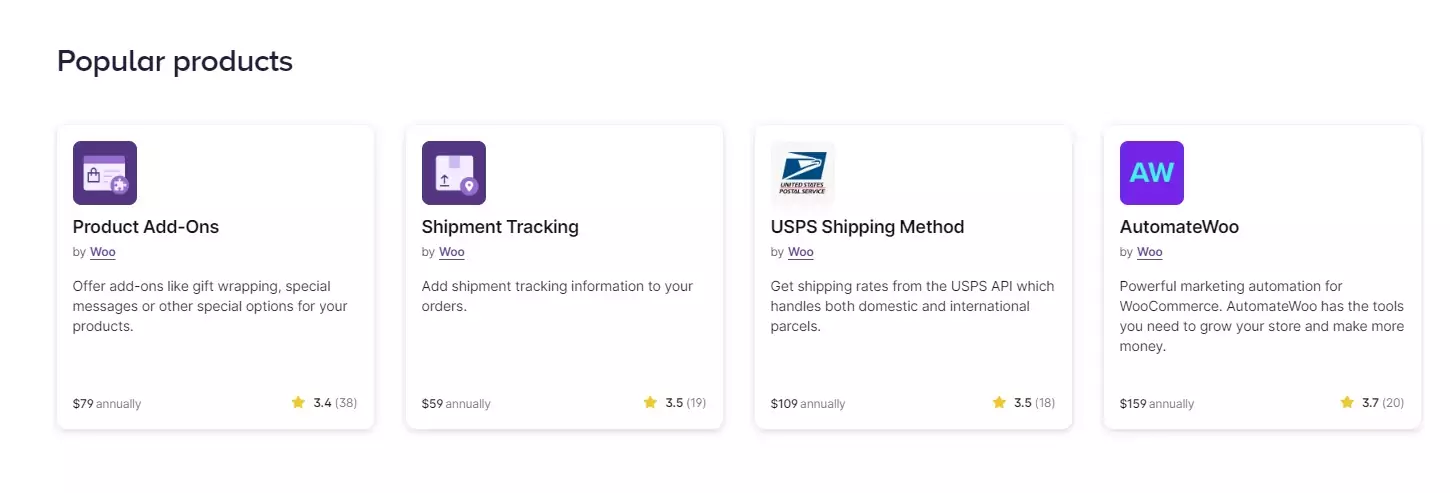
5. Squarespace
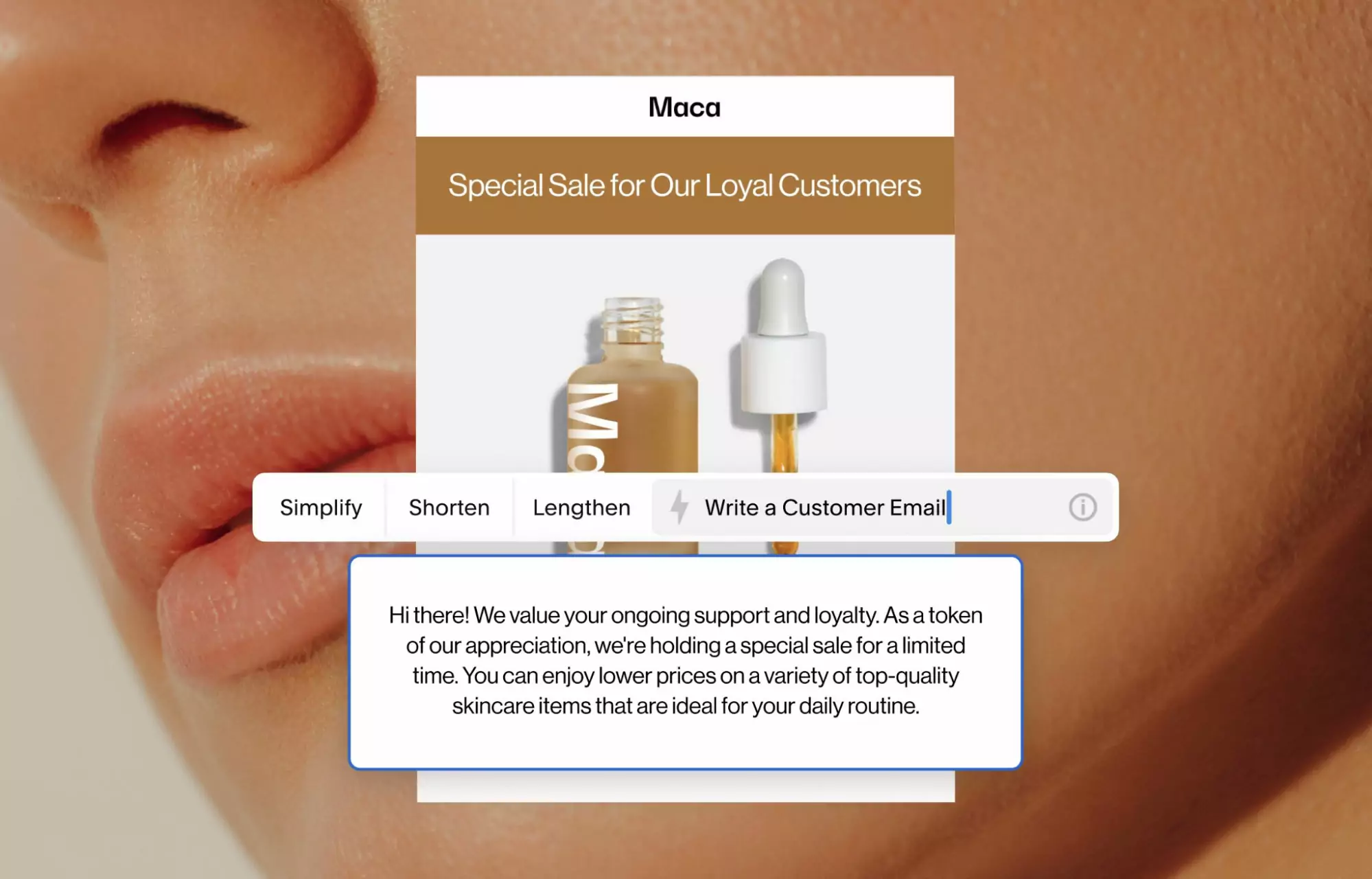
With its sleek, modern design, Squarespace is a popular choice for entrepreneurs who want to launch their businesses.
From building your ecommerce store with their no-code website builder to publishing and marketing it online, Squarespace provides basic ecommerce functionality.
While their ecommerce features are currently somewhat limited, Squarespace has been gradually expanding and improving them over time.
They also offer email marketing tools that let you create newsletters that match your website’s style and tone, improving your direct-to-consumer experience.
However, this feature comes at an extra cost, ranging from $7 to $68 per month, depending on the size of your subscriber list.
One downside is that Squarespace doesn’t provide native support for multilingual websites.
While you can create separate pages or even whole online stores for different languages, there’s no built-in system to manage multiple languages.
Although Squarespace may seem to offer competitive pricing, its cheapest plan doesn’t allow for product or service sales.
If you want an ecommerce site, you’ll need to opt for their Business Plan or higher.
Key features
- Use AI to help you develop a strong brand identity.
- Get access to seamless integration, such as with TaxJar and Xero.
- Flexible payment options for customers using Klarna
Pricing: Starting at $23/month + 3% transaction fees
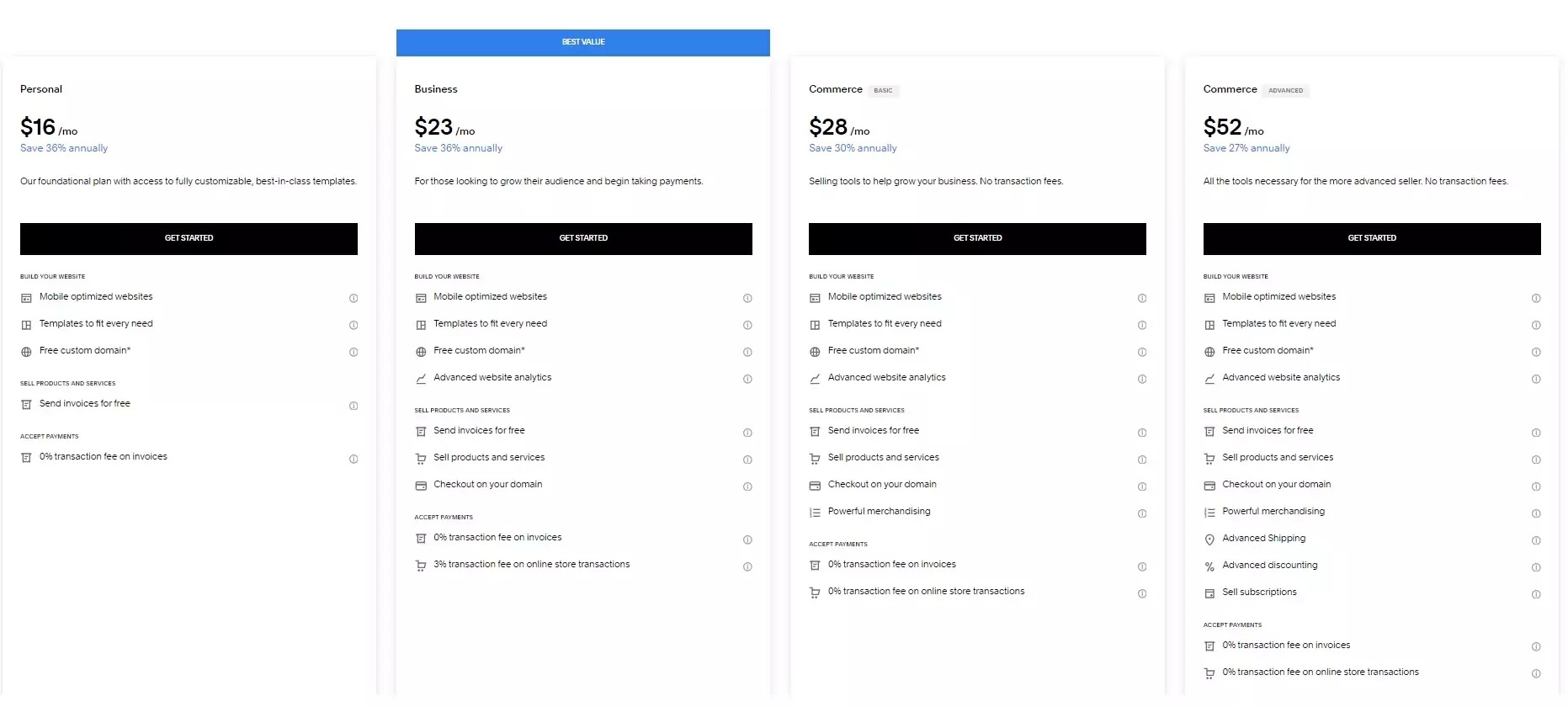
6. Wix
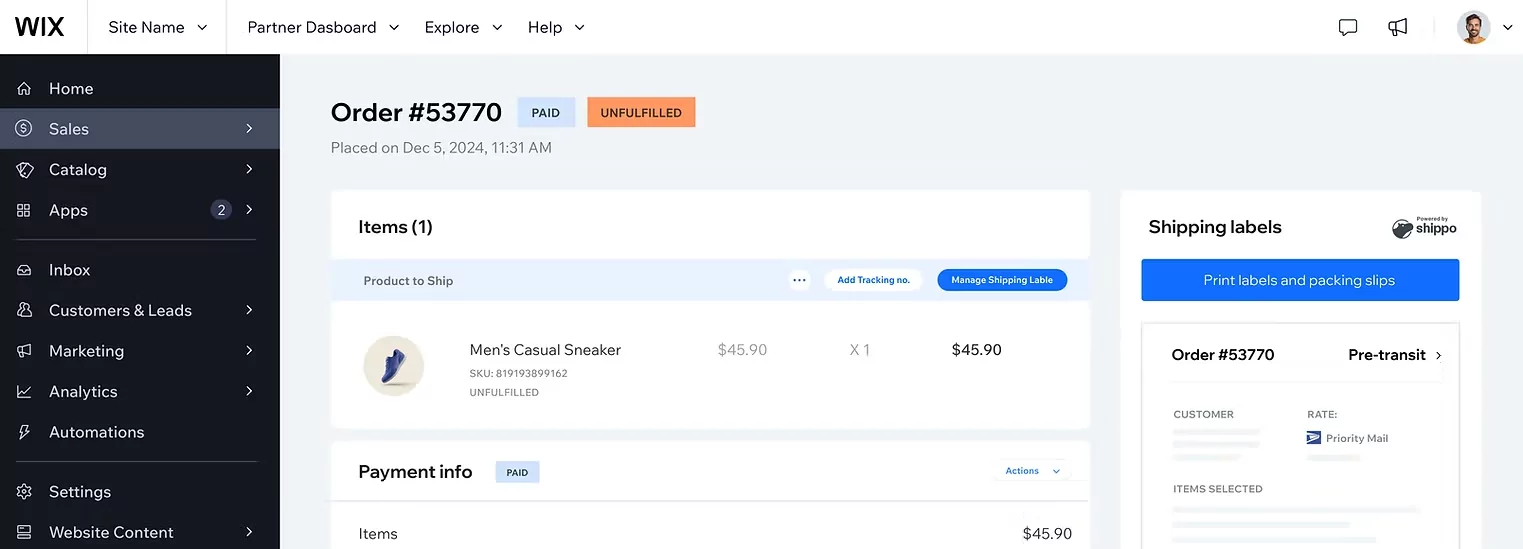
Wix is widely known for its ease of use, making it an excellent option for anyone—even those without technical skills—to quickly set up their own website.
If you’re juggling the demands of running a business, Wix’s intuitive interface can be a time-saver.
Wix offers core ecommerce features, including inventory management, multiple payment options, and a built-in shopping cart.
This makes it suitable for small to medium-sized businesses looking to sell products or services online.
For example, if you’re selling local products like handcrafted items or offering personal services, Wix provides a fast and effective way to establish your online presence.
However, Wix may not be the best option for businesses with ambitions to scale their direct-to-consumer operations in the future.
Similar to Squarespace, Wix is still in the process of expanding its ecommerce capabilities, which means that it may lack the advanced features needed for larger operations.
Key features
- Get scheduling software to manage bookings, payments, staff, and clients.
- Choose from over 900 website templates.
- Provide brand input and let AI build your website for you.
Pricing: Starting at $29/month + 0% transaction fees (payment provider fees not included)
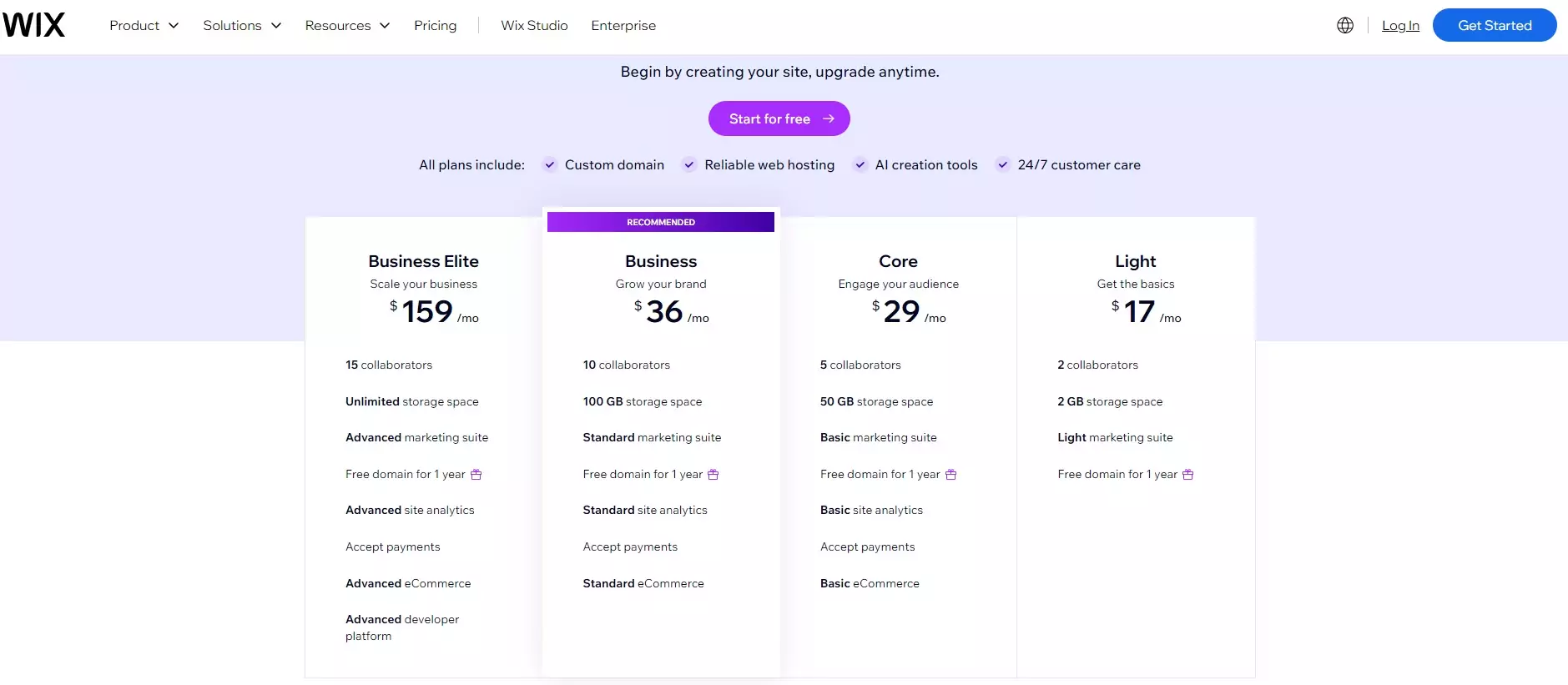
7. Dukaan
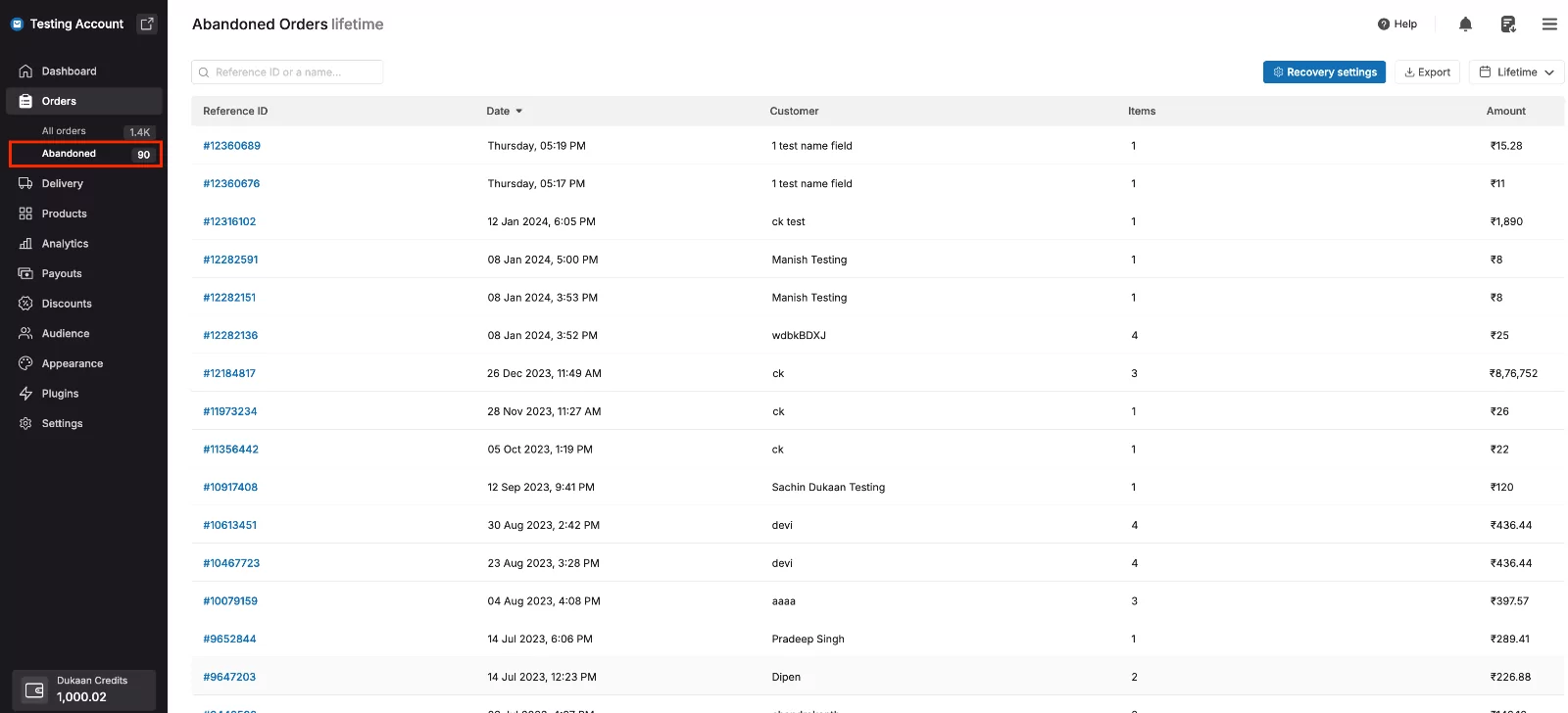
Dukaan is an India-based company that provides ecommerce solutions to businesses worldwide.
While some reviews label it as a “cheap Shopify alternative,” a closer look at the pricing reveals that it’s actually similar to many platforms on this list.
Dukaan stands out for its intuitive, user-friendly interface, making it easy for merchants to set up and manage their stores without needing technical expertise.
Like Shopify, Dukaan offers a variety of plugins to enhance your website’s functionality. However, unlike Shopify, these plugins are included in the cost of your plan.
With access to a minimum of 50 plugins, Dukaan gives you the flexibility to add only the tools your business truly needs.
This approach keeps your site lean, avoiding the clutter and potential slowdowns caused by unnecessary features.
Dukaan is highly regarded in India and it’s expanding globally, offering similar advantages to US businesses.
Currently, they serve clients in over 2,900 cities worldwide.
Key features
- Set up and manage your entire online store from your mobile phone.
- Use WhatsApp to take orders, send notifications, and manage customers.
- Manage multiple warehouses that are linked to a single store.
Pricing: At the time of publishing, these were the converted prices for their different plans. Note that transaction fees are capped at $2.38 per transaction:

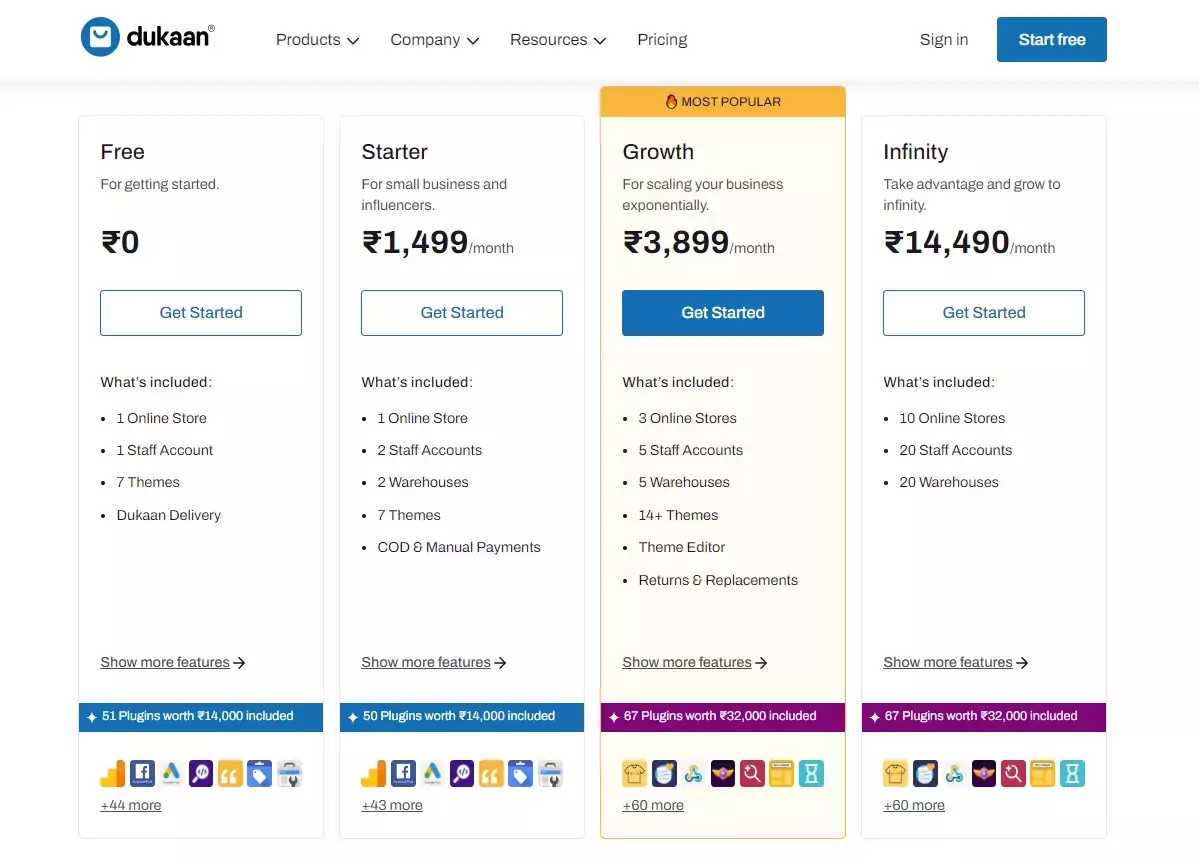
8. Pixpa

Unlike the other options we’ve looked at so far, Pixpa is specifically designed for creatives who want to showcase their work and—on top of this—sell some of it.
Therefore, its ecommerce functionality is a secondary feature, while its main purpose is for writers, illustrators, designers, and artists to create portfolios.
If you’re a creative who wants to set up a professional portfolio that allows viewers to also buy your work, then this is the perfect ecommerce platform for you.
Here are some examples of creatives that would benefit from using Pixpa:
🎨 Boutique stores offering handmade bracelets to local customers.
🎨 Illustrators with custom prints and digital artwork selling directly to customers.
🎨 Pottery businesses featuring handmade ceramics for online sales.
However, this wouldn’t be suitable for general businesses that are looking for an ecommerce platform to sell non-creative products or services.
The most appreciated element of Pixpa by its current customers is that it offers an extremely responsive support team.
If you get stuck while trying to set up your website, they promise to respond to your query within three minutes of reaching out to them—and this appears to be a promise they keep.
Key features
- Create a photo gallery app to showcase your work to prospective clients.
- Make shipping rate lists and offer different delivery options.
- Choose to sell images either digitally or in print format.
Pricing: Starting at $4.80/month to sell 3 products or $9/month to sell 10 products.
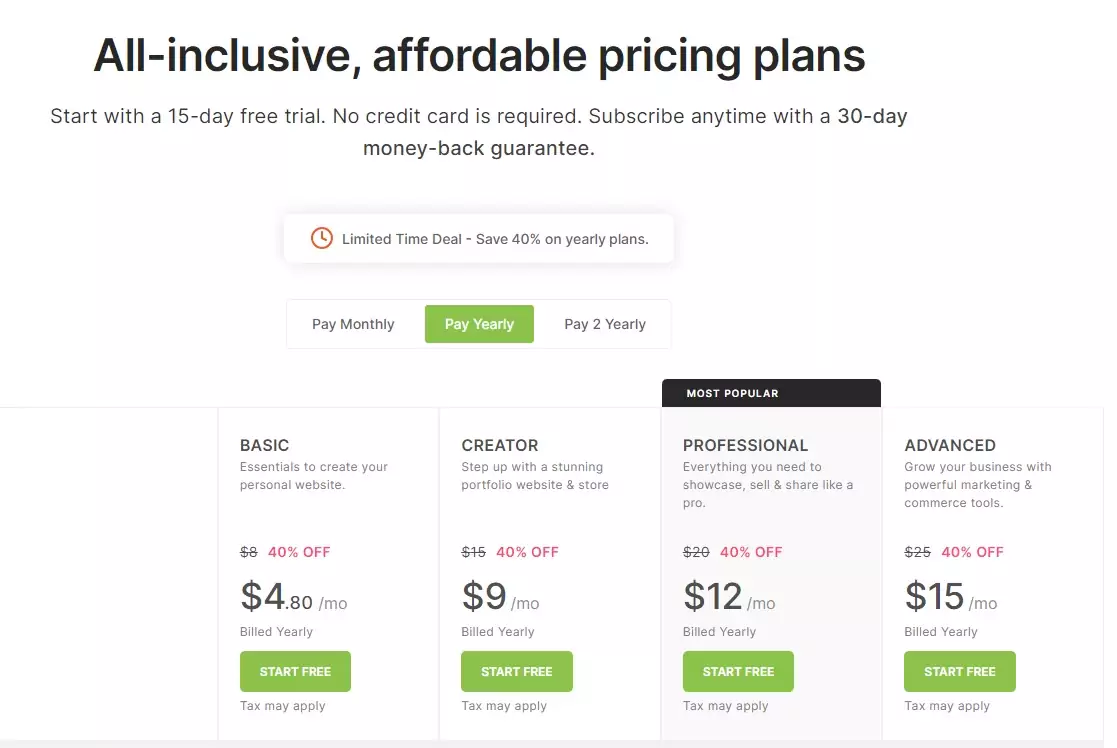
9. Volusion
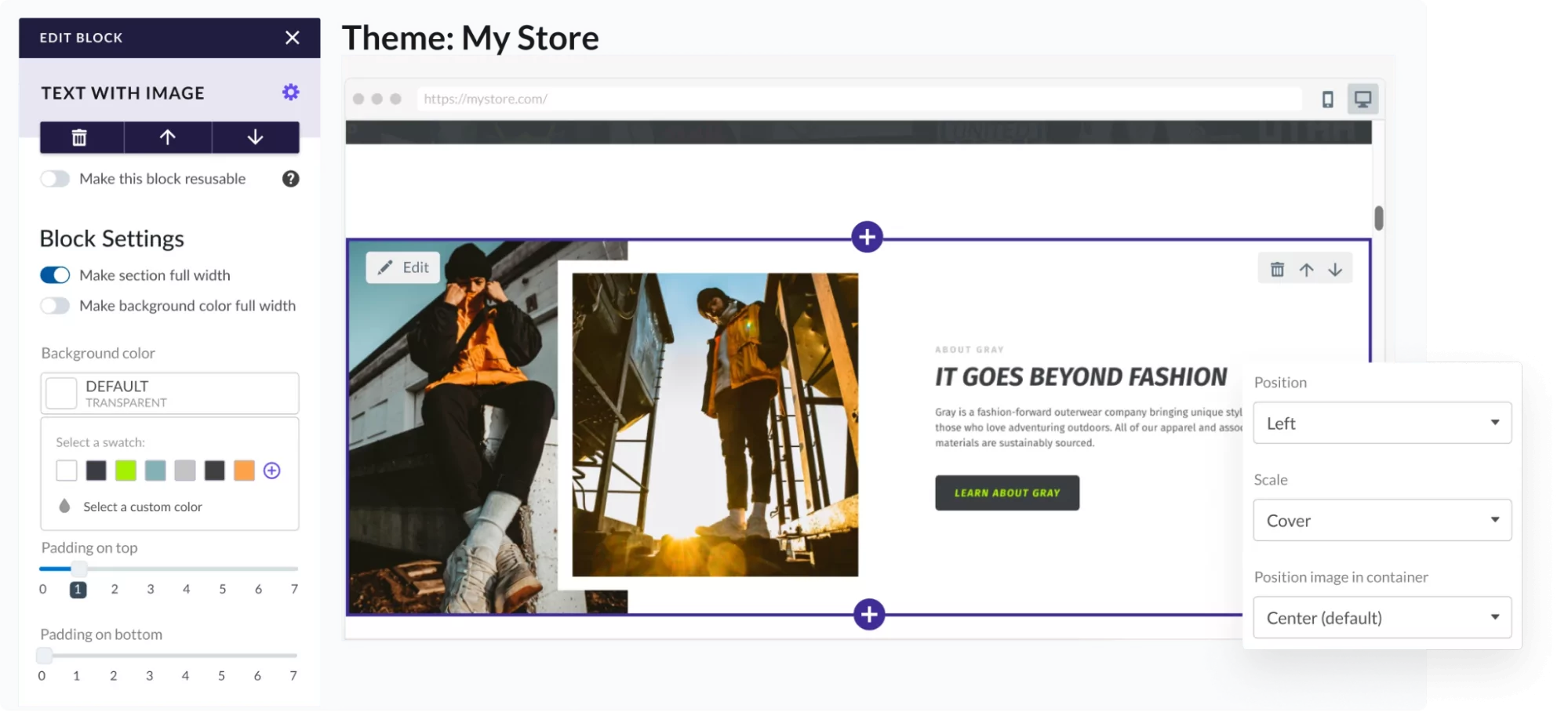
Launched in 1999, Volusion is one of the oldest ecommerce platforms still around, with about 30,000 brands using it today.
One of its biggest strengths is its analytics tools, which help you track sales, website traffic, and customer behavior.
This makes it a great choice for businesses that rely on data to make decisions. However, Volusion has fallen behind in other areas.
For example, it doesn’t let you sell digital downloads, so if you plan to offer products like e-books or music, this platform won’t work for you.
It also doesn’t have a built-in blog section, making it tough to add articles or content to engage your audience.
Overall, Volusion can be a solid choice if you’re looking for basic ecommerce functionality with good data insights.
However, its lack of modern features like digital product sales and content creation tools might make it less ideal for businesses looking to grow or expand.
Key features
- You can add videos to suggest products on your website.
- Use their mobile app to manage your store on the go.
- Allow customers to pay with digital wallets, like Amazon and Apple Pay.
Pricing: Starting at $35/month + 0% transaction fees if you use Stripe

10. Elementor

According to their statistics, a new Elementor website is launched every 15 seconds, which means that thousands of businesses trust them daily to enhance their online presence.
Elementor doesn’t function as a full-fledged ecommerce platform, but rather as a design tool that integrates with WordPress and WooCommerce.
This gives you complete control over the look and feel of your online store, without needing coding skills.
You can easily design and customize product pages, cart layouts, and checkout experiences with its drag-and-drop editor.
If you opt for Elementor’s “Business” plan or higher, you gain access to advanced ecommerce features such as WooCommerce Builder.
This lets you add and fully customize your product and store pages, dynamic content, and marketing integrations like forms and popups to increase conversions.
Its latest updates also allow users to generate custom HTML and CSS, offering greater flexibility for developers who want more control over their site’s design.
However, since Elementor requires both WordPress and WooCommerce to run alongside it, the total cost can add up.
In the end, if working with the default WordPress and WooCommerce versions feels limiting, Elementor is a powerful solution to easily create a user-friendly ecommerce site.
Key features
- Include motion effects and dynamic content on your website.
- Use the staging environment to test new versions of your website before committing.
- Clone an existing site to easily create a sibling site.
Pricing: Starting at $19.99/month + 0% transaction fees if you use Stripe

11. Magento (now Adobe Commerce)
Magento typically isn’t included in lists of beginner-friendly ecommerce platforms because unlocking its full potential often requires a dedicated Magento developer.
However, if you’re tech-savvy, you might be intrigued by the fact that Magento powers $155 billion worth of transactions annually.
In 2018, Adobe acquired Magento, and it’s now known as Adobe Commerce.
This platform stands out for its unparalleled customization, enabling you to tailor everything from product pages to checkout flows.
While Magento offers great flexibility, the trade-off is complexity.
Hiring a developer to manage and scale your platform can be costly, with average salaries for Magento developers reaching $152,600 per year.
This makes Magento one of the more expensive ecommerce solutions on the market.
That said, Adobe Commerce is one of the most robust and scalable platforms, making it ideal for businesses with the ambition of becoming global, multinational companies.
If you need professional-grade tools and are prepared to invest in technical expertise, it’s the right choice for your business.
Key features
- Use AI to determine patterns in user behavior.
- See which users are on your website in real-time.
- Manage multiple sales channels and brands in one place.
Pricing: They only offer custom pricing. Contact them for a quote.
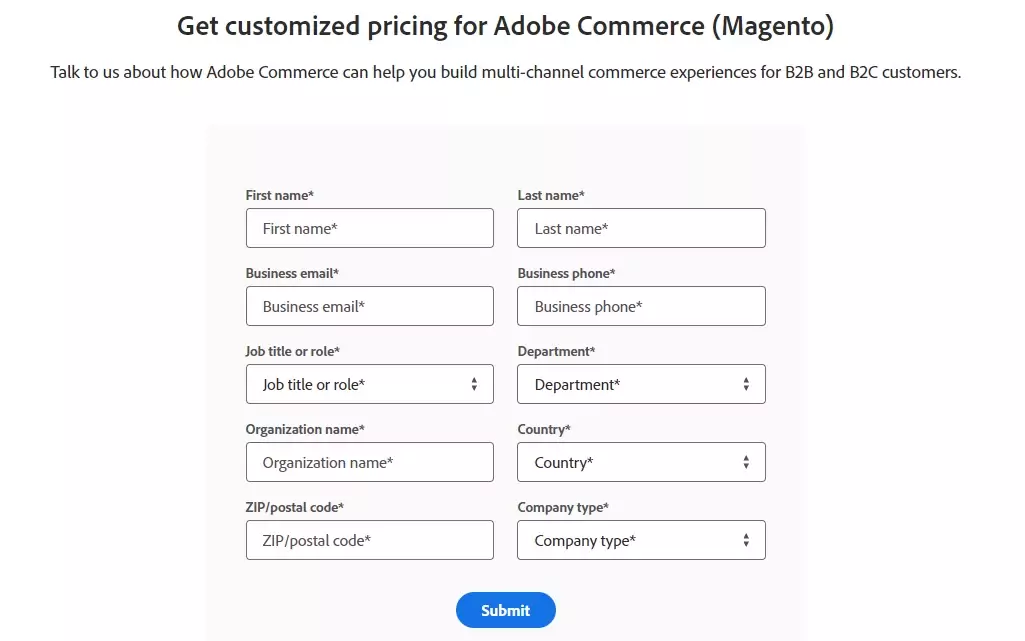
12. Centra
A new addition to this list, Centra has recently gained prominence among fashion and lifestyle brands.
Unlike traditional platforms, Centra operates as a headless ecommerce system, meaning it separates the front-end store from the back-end, allowing for greater customization and flexibility.
This makes it a great choice for brands that want a unique, high-performance shopping experience across multiple channels, including web, mobile, and social media.
Centra is particularly popular among fashion brands because it supports multi-store, multi-currency, and multi-language setups, making it easy to expand globally.
However, because it is a headless platform, it requires some technical expertise to fully customize, so it’s best suited for businesses that have (or are willing to invest in) a development team.
Key features:
- Headless architecture
- Manage direct-to-consumer sales and wholesale operations in one place.
- Supports multiple stores, currencies, languages, and localized pricing.
- Includes a built-in Product Information Management (PIM) system for handling large inventories.
Pricing: Centra does not publicly list its pricing, as it offers custom pricing based on business size and requirements. Brands interested in using Centra will need to contact the company for a tailored quote.

Why Choose a D2C Ecommerce Website Over Traditional Retail?
Switching to a direct-to-consumer (D2C) model offers brands more control, higher profit margins, and a closer connection with customers compared to selling through retailers or distributors.
Here’s why D2C may be a smarter choice:
✅ Higher profit margins
By cutting out middlemen, brands keep more of their revenue. Traditional retail involves wholesalers and distributors taking a percentage of sales, but with D2C, you set your prices and maximize profits.
✅ Full control over branding and customer experience
D2C allows you to manage every aspect of the customer journey—from first impression to checkout. You decide how your products are presented, how customers interact with your brand, and how you handle customer service, rather than relying on retailers who may not prioritize your brand the same way.
✅ Stronger customer relationships and brand loyalty
D2C brands communicate directly with their customers, fostering stronger relationships and loyalty. Without a retailer acting as a middleman, you can engage customers through email, social media, and loyalty programs, creating a more personalized experience that keeps them coming back.
✅ Direct access to customer data
Selling directly means you own valuable customer data. This insight helps you improve products, personalize marketing, and refine your business strategy. In contrast, retailers and distributors keep most of the data, leaving brands with little visibility into their customers’ preferences and behaviors.
✅ Faster innovation and product launches
D2C brands can respond quickly to market trends, test new products, and launch limited-edition items without waiting on third-party retailers. This agility gives you a competitive edge and allows you to meet customer demand faster.
✅ Greater flexibility in pricing and promotions
With full control over pricing, D2C brands can adapt quickly to market conditions. You can run promotions, offer subscriptions, or experiment with pricing strategies without restrictions from retailers. This flexibility helps attract and retain customers while maximizing revenue.
Challenges of Running a D2C Ecommerce Business
While D2C offers many advantages, it also comes with challenges that brands need to navigate:
⚠️ Customer acquisition costs: Without retailers promoting your products, you’re responsible for driving traffic to your store, which can mean high marketing and advertising expenses.
⚠️ Logistics and fulfillment: Managing inventory, shipping, and returns requires time and resources, whereas retailers typically handle these processes for brands.
⚠️ Customer support demands: Handling customer inquiries, complaints, and returns directly can be time-consuming and requires a strong support system.
⚠️ Scaling difficulties: As your brand grows, scaling operations—especially fulfillment and customer service—can become complex without third-party distributors.
What Businesses Does a D2C Ecommerce Platform Suit?
There are three main types of subscription businesses that a D2C ecommerce platform is most effective for.
They are:
🛒 Replenishment: This is often for essential items that customers use up on a regular basis. Examples include toiletries and coffee.
🥗 Meal prep: Meal prep subscription services send pre-portioned ingredients or prepared meals to customers’ homes. Examples of these brands include Blue Apron and Hello Fresh.
🚜 Community-supported agriculture: This is when locally-grown produce or products made from it, are sent directly to customers doors. A good example is a veg box delivery.
Features of a Good D2C Ecommerce Platform
Now that you’ve seen which ecommerce platforms are out there, let’s look at the features you should seek out for a successful D2C business:
🚀 Subscription options: While it may not be your initial business idea, many businesses later expand their offering to include subscription versions at a discount.
If you choose an ecommerce platform that doesn’t cater to this, you may end up regretting it later on when you want to take your business to the next level.
🚀 Customer-centric layouts: Your website’s user experience reflects on your brand—so make sure it’s intuitive and helps customers get what they need.
Your ecommerce platform should also be mobile-responsive with fast load times. This ease of use will help improve your brand’s reputation.
🚀 No-code builds: It will save you a lot of time and money if your ecommerce platform can be operated by nontechnical staff.
It should include an easy-to-use dashboard and a drag-and-drop website builder that doesn’t have a steep learning curve.
🚀 SEO functionality: It’s important to organically attract users so that you don’t spend a fortune on marketing campaigns.
A blog can generate traffic, help you rank higher in search results, and even boost sales.
🚀 Great support: One of the most underrated features of a great ecommerce platform is having access to help when you get stuck.
Make sure the platform you choose has great reviews for the support they offer to their clients.
Start Your Direct-To-Consumer Journey with Subbly
Choosing the right D2C ecommerce platform can set up your business for success.
Each platform has its strengths, whether you’re a small creative shop or aiming to grow a global brand.
Platforms like Wix are user-friendly, Shopify offers lots of support, and Magento gives you advanced customization options.
Before choosing, think about your budget, how much tech help you’ll need, and what your future plans are.
One way to tick all the boxes is to choose Subbly.
It gives your customers the freedom to choose their products, group them, and select one-time or subscription purchases.
This flexible bundling helps you offer discounts and keeps customers coming back. Try it free and see why Subbly is trusted by D2C businesses.

